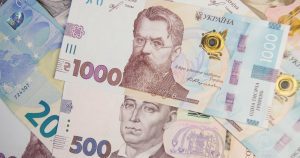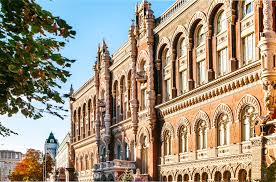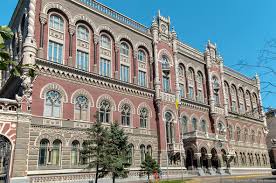
The Board of the National Bank of Ukraine has decided to keep its key policy rate at 6% per annum.
The NBU expects inflation, which increased to 3.8% in November, into the target corridor of 5% +/- 1 pp at the end of the year and further growth in consumer prices in the following months, the central bank said on its website on Thursday.
According to the NBU estimates, the quarantine restrictions announced by the government for January 2021 will not have much influence on economic activity, consumer demand, and thus on inflation.
At the same time, balanced monetary and fiscal policies will not only contribute to the resumption of economic growth, but also will maintain inflation at moderate levels.
“Cooperation with the IMF remains fundamental for the recovery of Ukraine’s economy. Financing provided by the IMF and other international partners is crucial for the planned budgetary spending. Without this support, the fiscal impulse required to revive the economy will be much smaller, and the recovery will take longer,” the message reads.
Ukraine’s fulfillment of its obligations under agreements with international lenders will unblock next tranches of official financing. This will reduce interest rates on state borrowing on the domestic and foreign markets.
The NBU added that a rise in coronavirus cases and the imposition of stricter quarantine measures to overcome the pandemic remain the key risks to macrofinancial stability. This could result in gloomier consumer sentiment and subdued domestic demand, which would depress economic activity and restrain inflation.
It is indicated that if a negative pandemic scenario is implemented, which will restrain consumer demand and slow down economic growth in general, the National Bank will be able to provide the economy with an additional monetary impulse.
“Conversely, the materialization of the adverse scenario will restrain consumer demand, slowing overall economic growth. Under such conditions, inflationary pressures will be weaker, enabling the NBU to give the economy additional monetary impetus for growth,” the release says.
A summary of the discussion by Monetary Policy Committee members that preceded the approval of this decision will be published on 21 December 2020. The next monetary policy meeting of the NBU Board will be held on 21 January 2021, according to the confirmed and published schedule, the regulator reminds.

Ukraine has entered the crisis in better macroeconomic condition than in previous crises due to prudent macroeconomic management over the past several years, and activity in Ukraine, the largest economy in the subregion, is projected to shrink in 2020, by 5.5%, the World Bank has said.
The decline in GDP in January-August 2020 will amount to 5.8%, the Ministry of Economic Development, Trade and Agriculture of Ukraine expects in the review of economic activity in August.
The International Monetary Fund (IMF) has improved its assessment of the decline of Ukraine’s GDP in 2020 to 7.2% from 8.2% in the June forecast.
The National Bank of Ukraine (NBU) has said that the GDP forecast for 2020 has remained unchanged at 6% and the expectations regarding its growth next year were improved from 4% (in July forecast) to 4.2%, the NBU said on its website on Thursday.
The National Bank of Ukraine (NBU) has improved the assessment of the decline in the gross domestic product of Ukraine (GDP) to 6.2% in July-September 2020 from 7.4% (in July’s forecast), according to an inflation report posted on the regulator’s website on Thursday night.
The National Bank of Ukraine (NBU) predicts a deficit of the public administration sector in 2020 at 6.5%, in 2021 at 4% of GDP and in 2022 at 3% of GDP, according to the central bank’s inflation report posted on its website on Thursday night.
The Board of the National Bank of Ukraine (NBU) has decided to leave its key policy rate unchanged at 6%, according to a posting on the website of the central bank on Thursday.
The National Bank of Ukraine (NBU) has improved its inflation forecast for 2020 from 4.7% (in the July forecast) to 4.1%, while worsened it for the next year from 5.5% to 6.5%.
The volume of exports of goods in September amounted to $4.19 billion, which is 2.87% higher than in September 2019, but 0.77% less than in August, the State Customs Service has reported.
The deficit of Ukraine’s foreign trade in goods in January-August 2020 decreased 59.4% compared to January-August 2019, to $2.399 billion from $5.915 billion, the State Statistics Service reported on Thursday.
Consumer prices in Ukraine in September 2020 increased 0.5% after a decrease of 0.2% in August and 0.6% in July and an increase of 0.2% in June, 0.3% in May and 0.8% in April and March, the State Statistics Service reported on Friday.
The National Bank of Ukraine (NBU) has improved its inflation forecast for 2020 from 4.7% (in the July forecast) to 4.1%, while worsened it for the next year from 5.5% to 6.5%.
State budget revenues in September 2020 amounted to UAH 76 billion, which is 15.3% more than the planned figure and 11.5% more than last year’s level, according to the data of the State Treasury Service.
The total public debt of Ukraine in September 2020 decreased 2.6% in U.S. dollars, to $82.89 billion and increased by 0.32% in hryvnias, to UAH 2.345 trillion, according to data on the website of the Ministry of Finance.
The prices of industrial producers in Ukraine in September 2020 increased 1.7%, while in August the increase was 2.3%, in July 0.4%, and in June and May they decreased 2% and 0.6%, the State Statistics Service reported on Monday.

The Business Expectations Index, calculated by the National Bank of Ukraine, in February rose immediately by 10.9 points, to 51.2 points, which is above the neutral value of 50 points and signals the prevalence of optimistic business expectations.
“Businesses have significantly improved expectations regarding their economic results. The growth of the index was due to improved sentiment regarding the economic situation at industrial enterprises and the service sector,” the NBU said.
The central bank said that the index in the industry grew by 9.4 points, to 53.1, in services by 11.7 points, to 52.8 and in trade by 13.6 points, to 49.9.
At the same time, a slight decrease by 0.1 points, to 34.2 points was recorded in construction.
According to its data, after four months of pessimistic sentiment, industrial enterprises expect growth compared to the previous month (growth from 43.7 to 53.1). Respondents significantly improved their expectations both in terms of production volumes and in the volume of new orders for products, including export orders (63.3 points, 62 points and 53.6 points respectively, against 39.8, 44.1 and 40.2 points a month earlier).
An increase in the number of employees so far is expected only by service companies. At the same time, respondents from industrial and trade enterprises had somewhat more restrained estimates of the reduction in the number of employees compared to January.

The National Bank of Ukraine (NBU) and the International Monetary Fund (IMF) have begun joint work on a new cooperation program, the NBU press service said on Facebook. According to the report, on September 12 the first meeting of the NBU board with the IMF mission, which arrived in Ukraine, took place.
It was attended by NBU Governor Yakiv Smolii, his first deputy Kateryna Rozhkova and deputy Oleg Churiy, as well as representatives of the IMF mission led by Ron van Rooden.
During the meeting, Smolii emphasized that cooperation with the IMF is extremely important to support macro-financial stability in Ukraine, primarily because it is the key to further reforms in the country, without which a long-term growth of the Ukrainian economy is impossible. Also, cooperation with the IMF provides Ukraine with access to official and private financing.
IMF representatives expressed their intention to continue a constructive dialogue on a new cooperation program, the report said.

The National Bank of Ukraine has decided from September 6 to lower the refinancing rate to 16.5% per annum from 17% per annum, at which it has been since July 19 of this year.
“The National Bank continues the cycle of easing monetary policy, as it expects inflation to slow to the target of 5%,” the central bank said.
The NBU board noted that internal political risks to reduce inflation to the target weakened with the beginning of work of the Verkhovna Rada of the new convocation and the formation of a new government. According to the regulator, this opens up an opportunity to intensify negotiations with the International Monetary Fund on a new cooperation program.
At the same time, the central bank pointed to the persistence of both internal threats to financial stability (lawsuits around the nationalization of PrivatBank) and external threats – the termination of gas transit from Russia from the beginning of 2020, the intensification of trade wars and turbulence in the global financial markets, the escalation of the military conflict and new trade restrictions of the Russian Federation.
As reported, on April 26, the NBU lowered the refinancing rate to 17.5% per annum from the level of 18% per annum, at which it had been kept since the beginning of September.